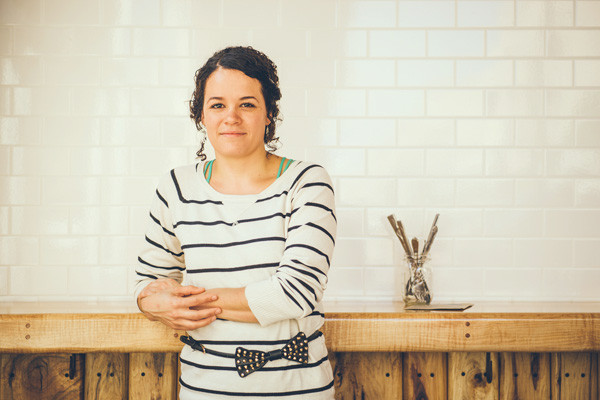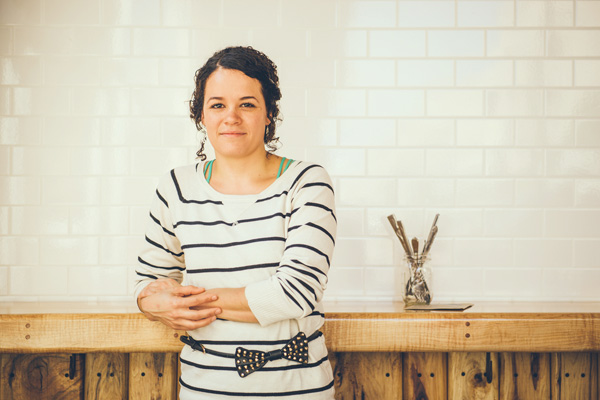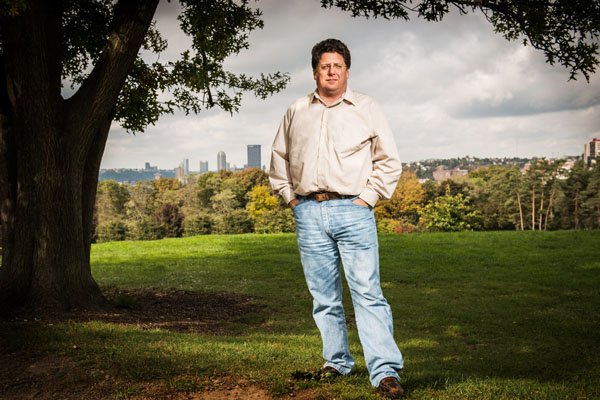This story first appeared on sister site Pop City.
Pittsburgh is dancing on a global stage thanks to the ideas and energy of people determined to move the city forward. In this series, we profile those who make things pop in Pittsburgh.
Beyond coal: Randy Francisco
Randy Francisco had no idea his voter registration work on behalf of the Sierra Club in 2004 would lead to his role today as an advocate for the transition from coal to clean energy on behalf of the national environmental organization.
“I absolutely loved it!” he laughs. “I met and worked with Sierra folks and helped turn out voters.”
The short-term gig led to a longer one building environmental communities on behalf of the Sierra Club, including a highly successful move into Mt. Lebanon that led to the establishment of the municipality's Environmental Sustainability Board. The so-called Cool Cities campaign kickstarted the Pittsburgh Climate Initiative, and a natural outgrowth of that was the Beyond Coal campaign. That received a huge assist from Michael Bloomberg in 2011 when the New York City mayor and philanthropist donated $50 million to the campaign. Francisco is running point on Sierra's coal work in western Pennsylvania.
“The campaign has been very successful,” he notes. “Several waste coal plants have been proposed but none have been built. I'm working on stronger regs from the EPA to protect communities that have been dealing with coal ash for a hundred years. That's where I get my inspiration.”
But it's not just about plant closures and soot cleanup. The community organizer is looking at the big picture and thinking about how to make industrial communities whole.
“These huge companies are saying 'close these plants' but no one considers the people. What will they do? We need to figure out a way forward. We need renewable energy and energy efficiency, but maybe it's not energy. The answer is in the communities themselves. We have this whole infrastructure – rail, rivers, manufacturing, work ethic – that is Pittsburgh that will help us find the new economy. Those coal barges going up the Mon with coal? Maybe they need to go down the Mon with wind turbines on them.”
It was a winding road that brought Francisco to this place. The Meadville native spent years in the restaurant business, moving from Delaware to Key West to Maui. His first foray into a political campaign in 2002 saw his Green Party candidate garner a record vote for a third party candidate in a federal election. It's still about working with people for the easygoing Francisco, and he's committed to doing so in Pittsburgh.
“I feel like I'm just coming into my own in Pittsburgh,” he says. “I've got a good group of friends and great working relationships, and am involved in orgs including CCI on the South Side that make Pittsburgh better. I see so much potential for Pittsburgh and see myself helping.”
A new way to eat and drink: Jamilka Borges
Jamilka Borges has a knack for being in the right place at the right time – and she's only 27 years old. After several successful years at Legume, a temple of sensible and sensual eating in Oakland helmed by chef Trevett Hooper, Borges moved to Bar Marco in the Strip District earlier this year. In doing so, she served notice that the bar-of-the-moment will also be known for its food.
“Right now, our whole process [at Bar Marco] is about who are are,” says Borges. “We have three owners who are 28 years old so we're all young. Everybody's really excited about different projects; we really complement each other.”
The array of projects is almost dizzying. Current and former partners opened Bar Marco in late 2011 and added a second establishment, The Livermore, in East Liberty in August. At Bar Marco, the Euro-feel bar recently added a wine director, Sarah Thomas, and Borges launched a full menu in early October. While an upstairs space is reserved for private parties, the downstairs is being re-imagined as a cozy white-wood cellar where Borges will prepare intimate dinners for 10 twice a night, Thursday through Saturday, scheduled to launch this month.
“The idea at Bar Marco has always been to be loud, happy, have conversations and eat well. You're not having that formal dining experience but can still have that composed dish, even if you're surrounded by people,” says the chef.
Borges and Thomas recently returned from a dining tour of Chicago, taking in restaurants from the classically French Everest to the loud and sassy Trenchermen.
“Trenchermen is fast-paced and friendly, very unpretentious,” says Borges. “Younger people are looking for that. They want to sit down and share good food, and order wine and cocktails they don't know.”
And yet, says the Puerto Rico native, Pittsburgh needs to be mindful of its place in this changing food and drink ecology.
“Our concept is getting there. Pittsburgh is still a growing city with lots of restaurants opening, but not that many people who can eat out every day. We're not Chicago or New York. People are really interested in what we're doing and ask questions: what are we drinking? eating? and they value it. That will make the change happen.”
Music for everyone: Fawzi Haimor
Fawzi Haimor caught the eye of many Pittsburghers when he conducted the Pittsburgh Symphony Orchestra's celebration of the music of Grateful Dead frontman Jerry Garcia in June. Alongside blues-rock guitarist Warren Haynes, who headlined the eight-city mini-tour, Haimor alternately assumed the role of assistant conductor and giddy fan. It was another innovative offering from the normally reserved ensemble that calls Heinz Hall home.
“Warren and I got to know each other really well,” says Haimor. “Not just musically–we spent time. What made this special [in Pittsburgh] was that it was the first time that show happened. Warren was worried that he'd never done this show with an orchestra so I just said, 'you do your thing.'”
The 30-year old Haimor is as well traveled as the Grateful Dead's musical catalog, spending the first 11 years of his life in Saudi Arabia as the son of a U.N. diplomat with Lebanese roots. The family then moved to the San Francisco bay area, where Haimor graduated from high school at the age of 16 before moving on to the University of California at Davis for two undergrad degrees (neurobiology, music) and Indiana University for two master's degrees (conducting, instrumental music). The accomplished violinist spent two years conducting the Alabama Symphony before stepping up to the podium in Pittsburgh.
“My role is split with Larry [Loh, the orchestra's other assistant conductor]. Our roles are to conduct, do educational outreach, and the Pops subscriptions. And we should be prepared to fill in if the conductor cannot perform. The criteria is 'can this person conduct one of the world's best orchestras?'”
As Haimor gets ready to start his second season with the Symphony, he is excited about new programming being put forth by the organization.
“It's absolutely essential and all orchestras are doing it,” he continues, his enthusiasm palpable. “Music is music. I don't care whether it's Mozart or Metallica as long as the purpose is to understand what goes into song making, and how a Symphony of 100 musicians can play so superbly. You have to appreciate the effort that goes in–that's why you listen.” And yet, there are many masters to meet. “There are people who love Pops tunes but we have a really classical audience base. We've got to do it all.”
A father of two young girls, Haimor relishes the opportunity to expand Pittsburgh's musical tent. “That's the biggest thing–music is for all ages, it's for everyone. I listen to rock and heavy metal, but I'm also a classically-trained musician. You're not supposed to know the music, just enjoy it. I'm trying to convey that message and it's working. I see different faces and ages in the audience, and those kids are our future. Conductors talk more now, engage the audience. Things change over time, but it takes time to change. It's worth it.”
ELAINE LABALME is a contributing editor at Pop City.
Photos by Rob Larson



